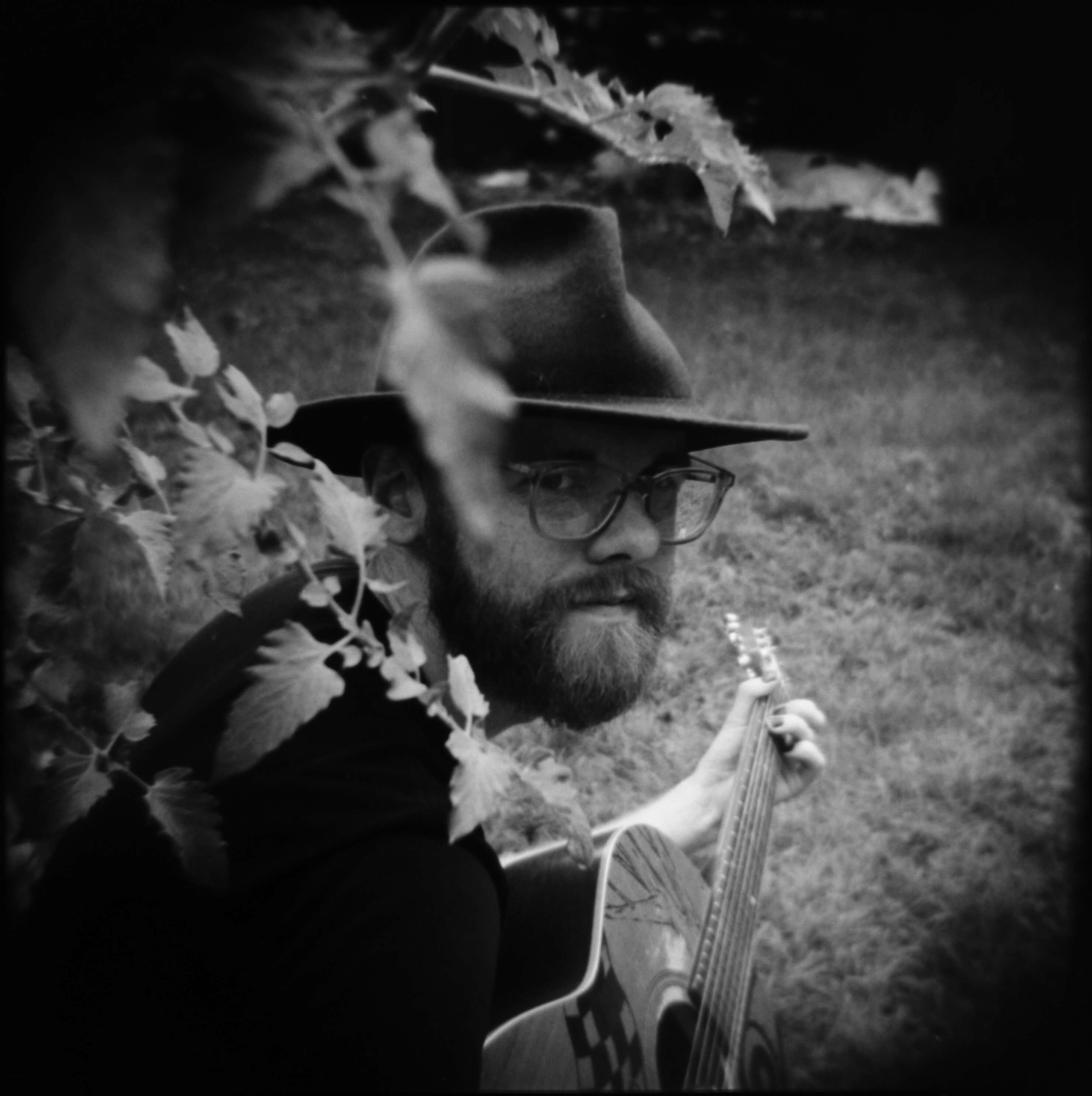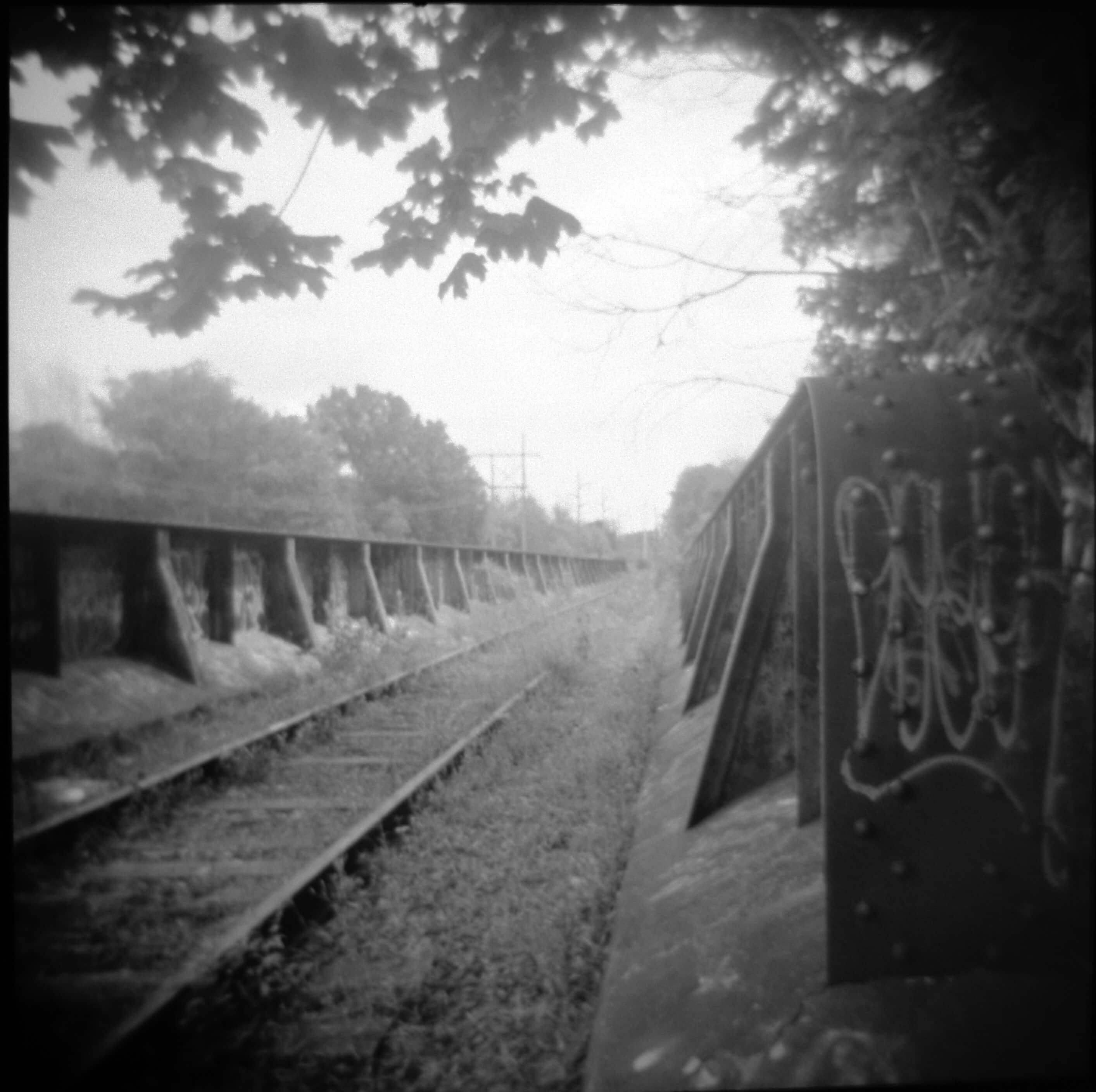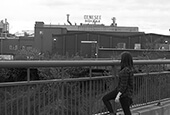Ben Baker
Interview No. 241


Interview by Emily Hessney Lynch.
Published August 7, 2020.
Where are you from? How did you end up in Rochester?
I’m originally from Fredonia. I went to college in the Finger Lakes and bounced between coasts a bit afterwards. I lived in the Pacific Northwest for a bit as well as in New England. I moved back to Rochester in 2013 to take a job in the school district.
What are some hidden gems you've discovered around Rochester?
I love being out on my bike and finding pedestrian bridges and little shortcuts, fun opportunities to get off the road a bit. There are so many great trails and outdoor areas for biking here, though biking on the road isn’t the best.
If you had $100 and two hours to kill, how would you spend the money/time?
I would probably go to Record Archive and have a beer at Swiftwater afterwards.
If you could only eat one Rochester food for the rest of your life, what would it be?
A veggie plate from Dogtown. My partner and I are both vegetarians, so we’re often there on wildcard dinner nights. I’m a French fries on my plate person, so that’s a must.




What's one memory that captures what Rochester means to you?
The thing that always takes me back is riding my bike down the river trail into downtown. I didn’t find a place to live until 12 hours before moving to Rochester. I moved in at night, then riding my bike to work and turning the corner at Corn Hill and seeing the pier, the bridge, and downtown made me think, “Okay, I’m in Rochester now.” It’s so welcoming and such a nice introduction to the city.
What makes Rochester unique?
The people. I’ve lived in a lot of mid-sized cities; when you’re part of the music scene, you see the way people either tribalize themselves or welcome others in. In Rochester everybody is so welcoming, people want to talk to you and get to know what you do. Whether it’s cross-genre shows in the music scene or meeting with educators in different fields or schools, there’s a common language and an interest in listening and learning that’s really unique here.
What would you like to see change in Rochester over the next year?
The biggest point of division is still around class. There’s a lot of class issues in Rochester. I see it especially as someone who has worked in the school district for so long. Lots of opportunities require you to have certain cultural capital, which you may not have depending on your class. It’s hard for people who are talented and passionate to break in if they don’t look or talk the right way or come from the right neighborhoods.
Tell me about your work as an educator in RCSD.
Since 2013, I’ve been at School 17 on Orchard Street. I came to Rochester through an AmeriCorps position and worked at IBERO for a couple years before ending up as a district employee. My role is focused on school support, doing things that makes teachers’ jobs easier. I work on skillbuilding and community building, aiming to empower kids to make their own decisions and be stewards of their own learning. We’re working within systems that aren’t designed for them.
Through the lens of COVID, it’s an interesting time to think about education reform and how we can do school differently. There are simple things we can do to make school more useful for kids and more beneficial to teachers and all of the adults that work with them. For example, grouping kids by ability and need rather than age would make education work a little better. There’s so much baked into education that’s not education- both in terms of what teachers need to do and what kids are expected to do. I value the times I can help kids step outside of that and help them be more informed about their choices and their power.
Right now, I’m getting a master’s in social work from UB. My dream is to be a behavioral specialist or guidance counselor. All this stuff goes deep! Behavior management is punitive now. I want to see a more restorative community where students have the vocabulary to talk about themselves beyond “I can do this much because the math test told me I could.”




Tell me about the music you make and your band, That One Crocodile.
It dabbles in screamy acoustic punk. It’s garage rocky, folk-influenced, indie rock. My own made-up genre for myself is North Americana.” Folk rock and alt country are big influences on my sound, but I also want to pay homage to all the Canadian artists that inspire me as well.
Since 2004, we’ve gone by Doc Baker’s Traveling Musicological Extravaganza. It was time for a change, so this summer, we changed our name to That One Crocodile. When we play live, the band is loud and loose. It’s about getting out and having fun rather than perfection.
I also have my own recording studio called Canadaway Records. I’ve been recording myself and other bands since I was in high school, and have been lucky to start being able to work with more people lately. My current setup is the most permanent and nicest I’ve ever had! Canadaway Records is named after a creek I grew up on in Fredonia; I’ve always carried that with me as a nod to home.
How would you describe the music scene in Rochester?
It’s wildly inclusive in ways I’ve never seen before. Everybody is so welcome and nice, including to newcomers. There’s so much history here as a town for music. I told Connecticut friends I was moving to Rochester and a bar owner there remembered playing the Bug Jar in the 80s. There are iconic names and mythical venues which I’ve now gotten to play at! People are open to collaborating and don’t seem to judge based on genre, which a lot of other scenes do. It’s really refreshing. You can get lost in a scene that’s too big or burn out in one that’s too small; Rochester has the balance down well.
How has COVID impacted musicians? How can we support them right now?
I’m lucky in that I don’t make a lot of my living through music, but some people are completely financially dependent on it. For me, it’s unfortunate that I can’t get out and play as much as I want to. It’s a disaster for those who made their living from performing. It’s proven that there’s a value to art and music beyond just entertainment for the night. People who followed a band and would go see them regularly probably didn’t realize that they kept that band going. There wasn’t a concept until now that this could go away.
If you have a favorite band, donate on their live stream concerts, buy their records, and purchase merch. If in the past you spent $15 to go see them and $15 on drinks, you can donate $30 on their livestream.
If Rochester was a musician, what genre of music would it perform?
It’d be screamy acoustic punk, but in a suit, and it would bring all of its friends onstage.
What advice would you give to up and coming musicians?
Don’t compromise for what you think other people want to hear. If you feel driven to say something in a certain way or write a certain song, don’t question it. Write that song. The people who need to hear your songs will hear them. The people who think it’s not very good aren’t worth spending time talking to about your music. If you are driven to create something, you have that feeling for a reason. Don’t deny yourself that.
Ben Baker is an educator and musician. His band is called That One Crocodile and he loves Rochester's inclusive, welcoming music scene. For more of his perspective, visit our Instagram.


